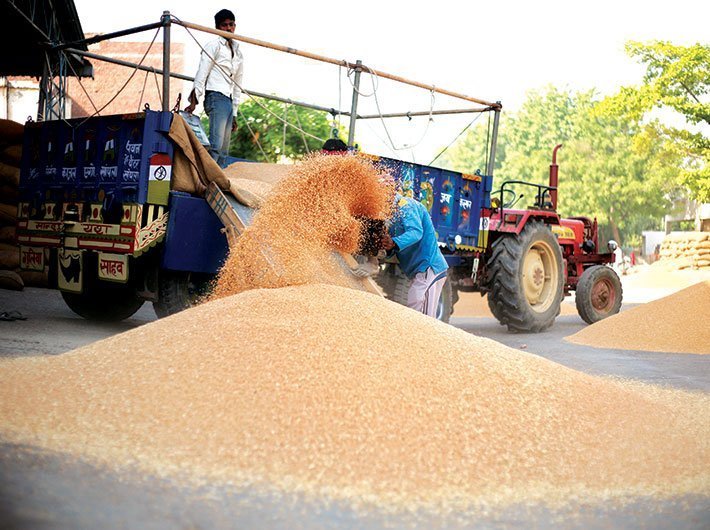Identifying the causes of gaps will provide actionable information to enhance food security
Yield gaps in wheat production in India can be countered with an earlier sowing date, says a University of Michigan researcher.
Using a new way to measure wheat yields, Meha Jain, assistant professor at the U-M School for Environment and Sustainability, found that the wheat yield in eastern Indo-Gangetic Plains, India’s main wheat growing region, can grow by 110 percent if the best farm management practices, including earlier sow dates, are implemented.
"Identifying the causes of gaps will provide actionable information to enhance food security," said Jain, adding that food security will be increasingly challenged by climate change, natural resource degradation and population growth over the coming decades.
India is the world's second-largest producer of wheat after China. Previous studies have suggested that wheat yields have stagnated and rising temperatures could reduce yields by up to 30 percent by mid-century.
"Wheat is one crop that is highly impacted by heat during grain filling stage," she said. "Moving the sow date earlier, even by a couple of weeks, can make a big difference to the yield."
Her research looked at some of the top wheat producing states—Haryana, Punjab, Uttar Pradesh and Bihar—from 2001 to 2015. The research describes yield gap as the difference between the realistic maximum potential yields that can be achieved versus actual mean yields.
According to the study, yield gaps were low in the northwestern states of Haryana and Punjab—India's wheat belt—but it could be increased by another 10 percent by changing the sow date.
It is the northern and eastern states of Uttar Pradesh and Bihar where the gaps were much higher—yields could be increased by up to 32 percent with an earlier sow date. By improving management practices to the highest yielding farms, the yield could be doubled.
"One of the most important factors we found for closing yield gaps was earlier sowing," Jain said.
In their study, Jain and colleagues used the Scalable Crop Yield Mapper to map wheat yields using satellite data for better spatial resolutions. They then used these estimates to quantify existing yield gaps within each district across the Indo-Gangetic Plains.
"This new method gave us much more granularity," Jain said. "We were able to estimate yields at 30-meter resolutions instead of coarse scale, district-level census statistics."
The researchers then examined the impact of sow dates, irrigation use and the amount of fertilizer applied. They found that sow date was the biggest factor in the wheat yield gap across all states. Access to irrigation was the second-largest factor leading to a yield gap.
"Strategies to reduce the negative impacts of heat stress, like earlier sowing and planting heat-tolerant wheat varieties, are critical to increasing yields in this globally important agricultural region," Jain said.
The study, "Using satellite data to identify the causes of and potential solutions for yield gaps in India's wheat belt" was published in September in Environmental Research Letters. Other researchers on the study are Balwinder Singh, A.K. Srivastava, R.K. Malik, A.J. MacDonald of International Maize and Wheat Improvement Center, and D.B. Lobell of Stanford University.
